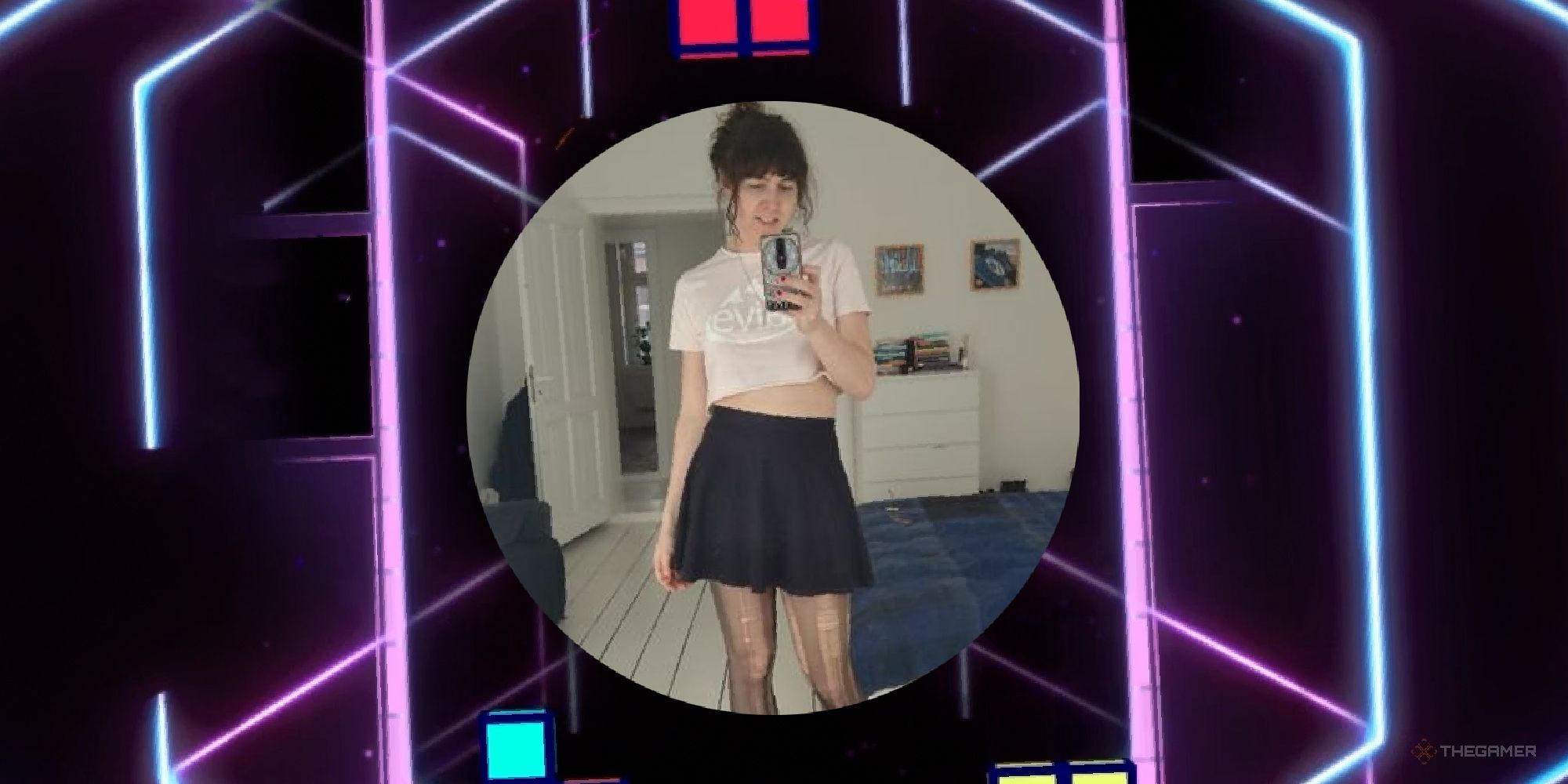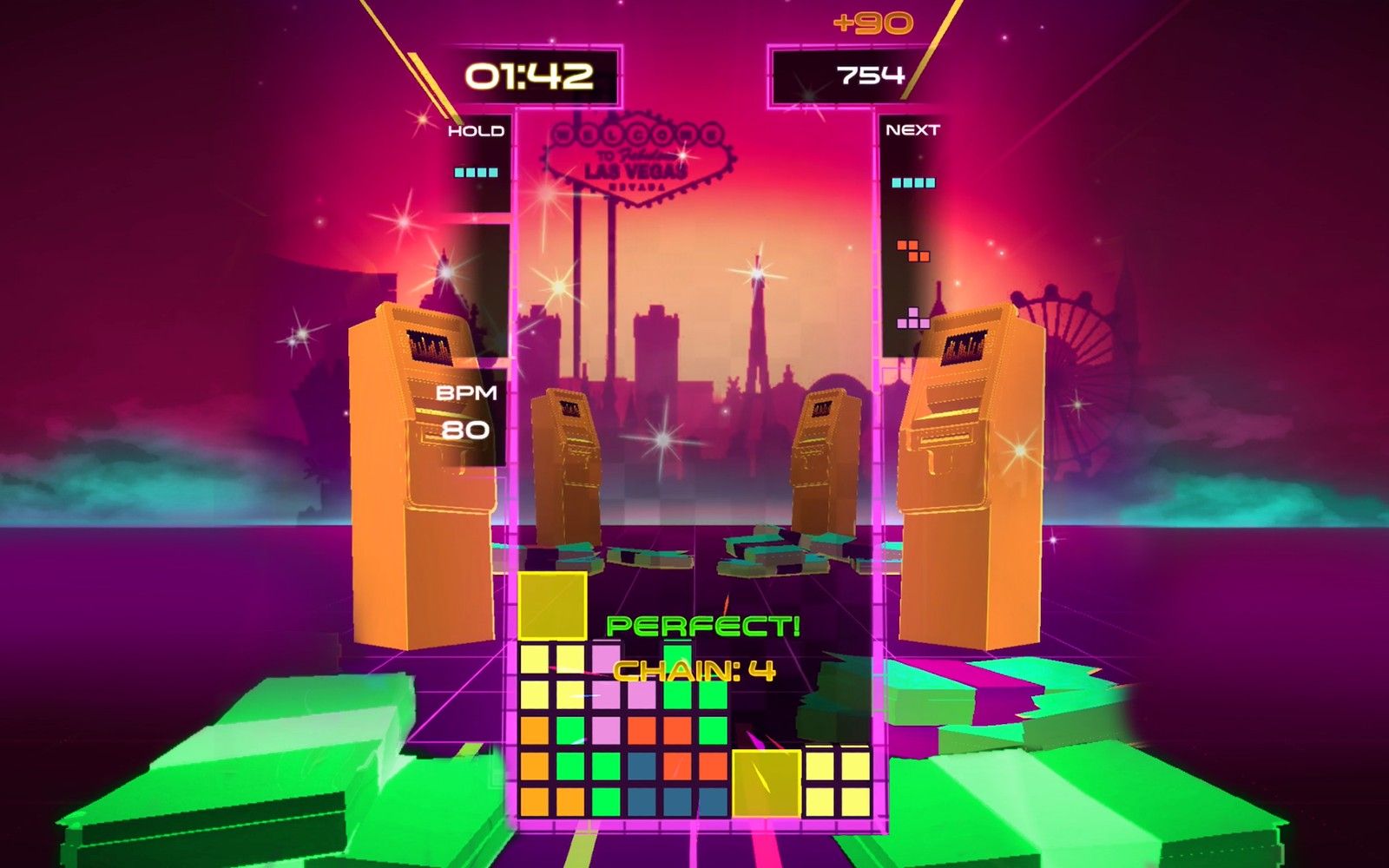“It was difficult and scary [coming out as trans in the music industry] because I had no idea what it was going to mean for me,” DJ, artist, and Tetris Beat guest musician Octo Octa says. “I never approached producing or DJing as a career; it was just the art I made to express myself. So it was important for me to live my life versus having a sustainable or successful ‘career’.”
Maya Bouldry-Morrison - better known as Octo Octa - is a trans DJ from Chicago who has been making waves in the New York music scene while championing for better queer inclusion and representation. Her name is “a truncated version of an old AIM screen name” they used in their late teens (OctopusOctagon) - fittingly, they’re now making songs for the rhythmic Tetris Beat. “At the time, I didn’t quite understand the significance of using two gendered prefixes which now, in retrospect, feels appropriate,” Octo Octa tells me. “It’s also telling of my future.
“I came out in the middle of touring and releasing records. Friends and clubs in NYC knew I was trans before I came out publicly, but I had to finally tell everyone who I was so I could tour and have people already know who I was. Everything went how it does with coming out, some people didn’t talk to me again, other people became extremely close friends. I got to find a community I had needed my whole life while also opening myself up to abhorrent online criticism. My life is more difficult than it was when it comes to travelling and safety, but I’m also a happy, normal person now.”
Octo Octa composed an exclusive track for Tetris Beat and told me just how honoured she was to be a part of her favourite game ever. “I’ve been playing and collecting video games my entire life, with Tetris being a serious cornerstone in my playing diet,” she says. “I rarely take on commercial work and pass on almost everything so it was such a surprise and an honour to make a song for the game I play more than anything.
“I couldn’t be happier to be making a song for my favourite game of all time. I very much use Tetris as a meditative tool to get through stressful times, so I wanted to write something that you could sink into a meditative state with. While the song is upbeat, it’s also very much a tunnelling track meant to draw you in and sustain a mood. When I started making music 20 years ago, I always had the dream of making video game music but never had the chance. So it’s been a long-time [where] I’ve been thinking about what I would want to hear. The first thing that’s different is that I am making music that needs to be approved or accepted by someone else. Typically when I write, it’s for me; if I love the song, then it’s going on the next record.
“For this song, I had to have something that agreed with the project and write something the team wanted to use. I wrote four tracks before we had a song everyone agreed on. The second thing that’s different is that the song had to be looping. ‘Cosmic Hole’ is actually a two-minute track that I wrote as a loop with different layers. I wanted to be very intentional and conscious of how it would sound every time it would return to the start. The energy of the song should ebb and flow but not feel like it ended and then started over.”
Octo Octa isn’t stopping there - she’s pushing to give queer people the means to build their own careers in music and games. “What I want is for queer people to be given the resources to make their own future, not just to be accepted into an industry,” Octo Octa explains. “That means actual clubs, record labels, and collectives are run by queer people. That means [the] current industry teaching people how to run clubs, festivals, and labels, providing financial compensation and budget for them to do it.
“For example, myself and my partner started our own record label to release our own music so that we could make all the choices and also be appropriately paid for our labour. We are also starting to work with other trans folx and making sure they are getting access to resources that most record labels would not provide. The power structure of who is running this industry needs to change. I hope to see queer people thrive, not just be given a chance.”
Art across the board has a long way to go, whether it’s music, movies, television, or games, but things are improving. There have been some incredible, notable examples in gaming lately, such as Life is Strange: True Colours and The Last of Us Part 2, but triple-A development is still playing catch up with an indie scene that is ripe with queer stories told by queer creators. That’s the important note to take away - representation is something that needs to be addressed beyond the stage.
“Larger gaming studios need to have more overtly queer media written and made by queer creators,” Octo Octa says. “There are so many queer people making and producing queer games, but on a small scale. I grew up, like a lot of us, having to find the hidden queerness in games; to create identities for characters and invent subtext that would sync with who I am, but that wasn’t necessarily there or was intentionally made as queer-bait. I want us to actually be there and not have to read into everything.”


